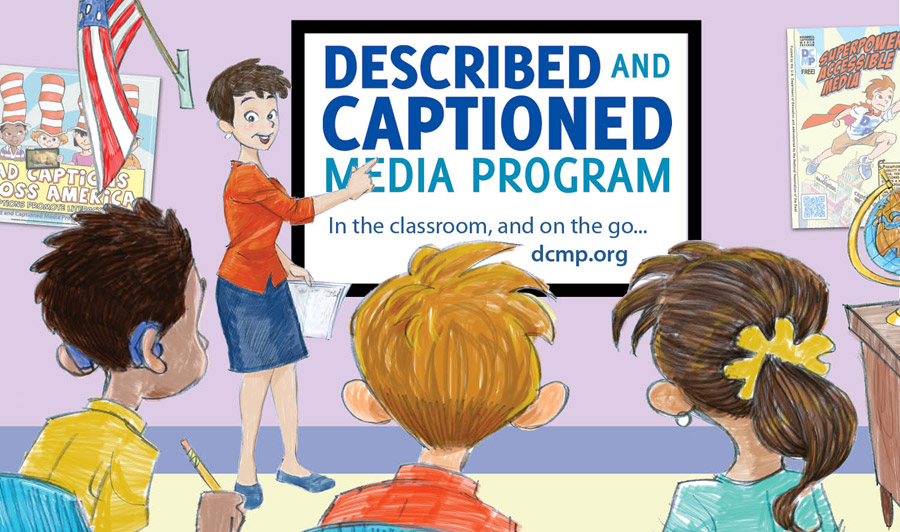<< Learning Center
Media Accessibility Information, Guidelines and Research
Deeper Viewing
Accessible Media as a Tool to Ensure Student Learning and Active Participation
By Jade Cox
Due to new emphasis on standards and performance based outcomes, students must not only show content mastery, but they must also demonstrate the application of their knowledge through use of critical thinking and problem solving skills. As educators are held accountable for meeting the needs of all students, they seek out proven instructional strategies that ensure student academic growth. One such method is Deeper Learning, and DCMP has built upon its foundations to offer further assistance to educators. DCMP has coined the term "Deeper Viewing", and has defined it as: "Use of accessible media to develop literacy skills of reading and writing, master core academic content, and improve the social-emotional and cognitive outcomes of all children."

Deeper Learning is grounded in the belief that students must not only show content mastery, but must also demonstrate their knowledge and skills in a way that prepares them life. According to the William and Flora Hewlett Foundation, Deeper Learning consists of six domains: Mastery of Content, Critical Thinking and Problem Solving, Collaboration, Effective Communication, Self-Directed Learning, and an Academic Mindset. These domains are essential for students as they prepare for future endeavors. The institution of Deeper Learning techniques lays the foundation for students to develop a more advanced set of skills required by higher education and employers.
The outcomes of Deeper Learning are significantly enhanced through integration of today's exciting world of digital educational resources. Deeper Viewing increases those benefits by granting all students, regardless of disability or learning style, equal access to information through description and captioning. In addition, accessible media is the perfect tool for differentiation to enable students to meet performance outcomes of the new standards based curriculum.
But Deeper Viewing goes beyond academics and content mastery, as it also enhances social-emotional learning. Accessible media "teaches" children friendship skills, emotional literacy, development of empathy, impulse control, and problem solving. Creating an environment where equality is the cornerstone to learning is crucial steps in helping students with disabilities believe in their ability to succeed in any situation. Captioned and described media gives all students access to information which empowers them and creates a level of independence, but it also enables individuals to gain knowledge which leads to an increased sense of social inclusion and academic mastery.
The practice of Deeper Viewing leads all students down the path of engagement and active participation in the classroom. Along this path, students build critical thinking skills, literacy skills, and analytical skills. Accessible media allows students to engage with content and practice real life skills. Accessible media is a formidable instructional tool for an educator which leads to deeper understanding and internalization of knowledge. But beyond the academic skills, students also develop self-esteem and become aware of their individual potential as the use of accessible media opens up opportunities for students.
About the Author
Jade Cox serves as the Educational Specialist at DCMP and has eight years of experience as an educator. Please feel free to contact her at jcox@dcmp.org regarding titles in our catalog or the media selection process.
Tags:
Please take a moment to rate this Learning Center resource by answering three short questions.
